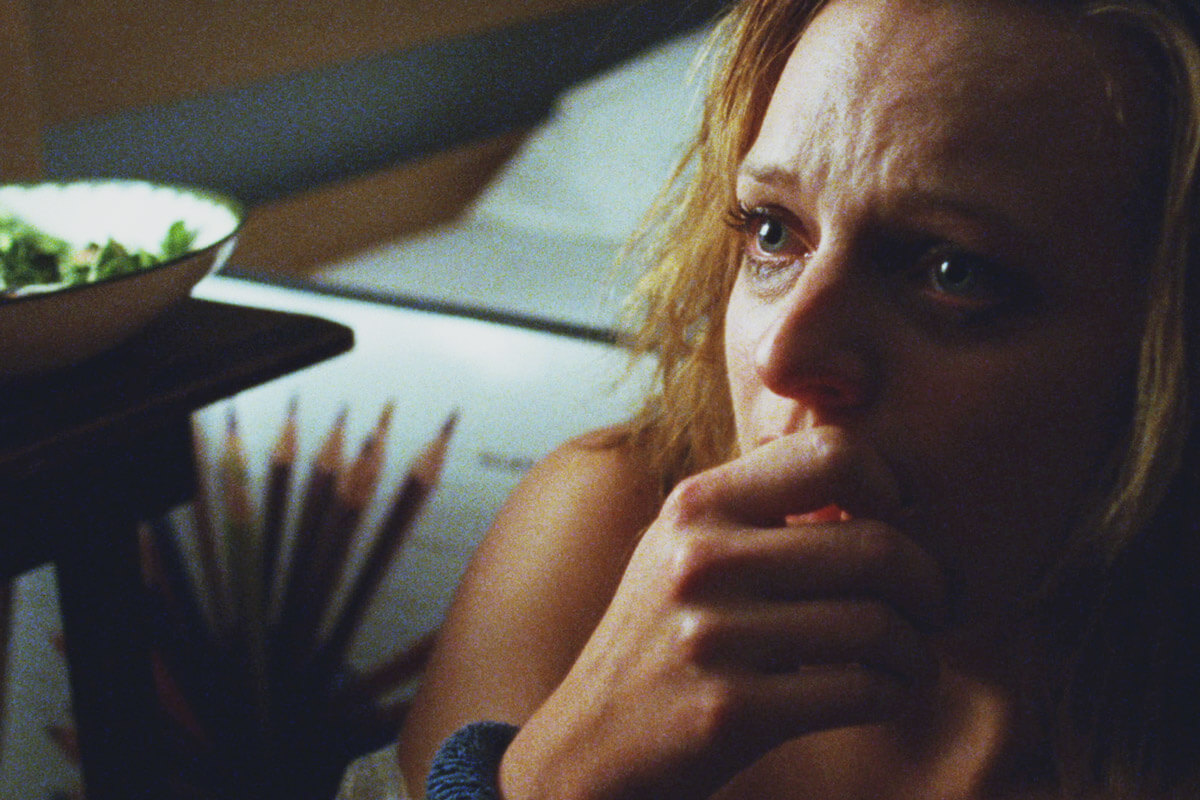‘Queen of Earth’ Alex Ross Perry’s “Queen of Earth” isn’t so much a psychological thriller as it is a psychological drama. And by “psychological” we mean that literally: It’s about someone — Elisabeth Moss’ Catherine — unraveling, but it’s more about the shambling neuroses of all of its characters, about crumbling friendships and about the strain of cohabitation. Catherine has decamped for a summer home currently occupied byVirginia(Katherine Waterston), a longtime friend sympathetic over her recent dumping, which comes on the heels of her father’s suicide. Catherine isn’t well and Virginia doesn’t know how to handle her, not when she goes off on weirdly long walks and especially not when she goes from a tear-caked mess, as seen in the opening shot, to a strained, manic perkiness that’s even more unnerving. RELATED: Elisabeth Moss talks “Listen Up Philip” and dealing with bad relationships We might expect stuff to eventually hit the fan, and perhaps we’re surprised when it doesn’t. We have good reason to think it will. Perry borrows the language of Roman Polanski and Eurotrash thrillers from the ’70s. (The decaying rabbit dinner in Polanski’s “Repulsion” is given a vegetarian spin here as a never-eaten salad.) There are creeping, unmotivated zooms, a sickening air of unease, a persistent, haunting score that loves to scrape the nerves. But no violence, apart from the emotional kind, erupts, and everything, for the most part, stays realistic if also deeply unsettled — a constant state of anxiety that rattles the nerves even more because none of it is consummated. It’s a midnight movie that turns out to be a Rainer Werner Fassbinder chamber drama. Much of “Queen of Earth” traces the intricacies of Catherine andVirginia’s delicate relationship. Sometimes it tosses in a monkey wrench. Their awkward living situation is periodically interrupted by Rich (Patrick Fugit), a smiling sadist neighbor who has charmed his way intoVirginia’s graces but has little but contempt for Catherine, whom he heaps with aggression every time her friend is out of earshot. Apart from Moss — and collaborators like cinematographer Sean Price Williams and editor Robert Greene — Rich is the most obvious connection to Perry’s previous work, particularly “The Color Wheel” and last year’s “Listen Up Philip.” Those films were caustic comedies revolving around characters often one-upping each other when it comes to darkly funny (and highly quotable) cruelty. Rich is the nastiest character Perry has yet written, projecting his abuse with grins and a friendly tone, no matter the insensitivity of his words. Catherine, meanwhile, is the nicest person in the Perry universe, though not always. He peppers her undoing with flashbacks to the previous summer, where, in a healthy relationship, she was obnoxiously upbeat, her happiness rubbing up against the single and grouchy Virginia. In the film’s present tense, Catherine can eventually be more evil than her tormentor. Beaming brightly through frightening smiles, she repeatedly shoots down Virginia’s attempts to play nurturer. The film’s most nasty moment is when Virginia, struggling through incoming tears, tells her she care for her, only for Catherine to casually rebuff her with a smile. It’s not nastiness for its own sake; hurt people don’t know how much they hurt people. RELATED: “Listen Up Philip” director Alex Ross Perry on name actors and shooting on film As things proceed, and as Catherine becomes even more undone, the spaces that contain the characters turns grim. The clean, bright summer home, all light-colored wood and wall-sized windows overlooking a disturbingly placid lake, becomes a banal prison. The frequent use of slow zooms and lengthy, invasive close-ups make it feel like they’re being spied on by a sinister force. They aren’t; much worse than imagined boogeymen are what real people can actually do to each other. Perry isn’t being funny this time, though some of Virginia’s sarcasm, particularly in the one-year-earlier flashbacks, show off his peerless gift for the art. But the tone is empathetic if detached, at once acutely observational and sick with mood. It’s not a simplistic, black-and-white study of mental sickness and fractured relationships but one that lives in the in-between spaces. Even a party scene, held when Catherine is at her least social, almost turns silly only to fall back to earth. The whole film works like that: It’s a movie that keeps threatening to turn into a horror film, including the ones that have inspired it. But it stays real and therefore all the more chilling.
Director: Alex Ross Perry
Stars: Elisabeth Moss, Katherine Waterston
Rating: R
4 (out of 5) Globes
‘Queen of Earth’ is an uneasy study of Elisabeth Moss losing it

IFC Films
Follow Matt Prigge on Twitter @mattprigge














